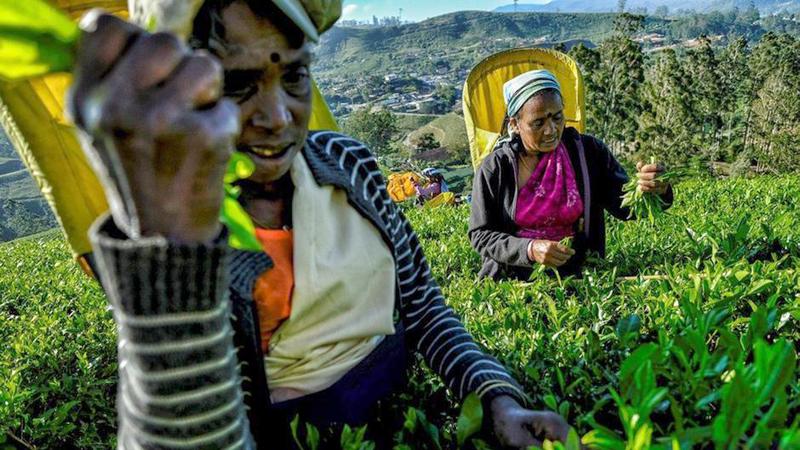
The plantation industry’s top priority over the coming year must be entirely focused on stabilising operations in the face of the pandemic, and gradually ramping up operational capacity – for which Covid vaccinations must be provided to all employees in the tea sector on an urgent basis, said a spokesman for the Planters’ Association of Ceylon (PA) marking Global Tea Day recently.
The Planters’ Association of Ceylon (PA) marked International Tea Day, with a call to all policy makers and stakeholders to take a holistic and practical approach ensuring a sustainable way forward for the industry, while ensuring that producers of Pure Ceylon Tea are given a fair deal. In alignment with the theme of this year’s International Tea Day celebration: “Tea and Fair Trade”, the PA called on the entire trade – including all Regional Plantation Companies (RPCs), and the State-owned and smallholder sector and factory owners, traders, exporters–to focus on enhancements across the supply chain, in order to carve out a sustainable way forward for the sector. In a media communiqué the PA stated as all others in the commercial agricultural sector locally and globally, Sri Lanka’s tea sector faces immense challenges on all fronts in 2021. Moving forward it is clear that every single aspect of the industry will have to be re-evaluated, and where necessary and practical, new thinking and strategies will have to be implemented in a scientific manner.
This covers everything from crop and soil management to climate change, related socio-economic models, to processing, quality control, value addition, and export diversification, as well as the role that emerging technology will play in enhancing competitiveness.
Sri Lankan RPCs have continuously set global benchmarks in each of these areas and continue to explore avenues for improvement.
However, the RPC sector only accounts for 30% of total production, where the majority is generated by the smallholder sector. Any significant policy changes must not simply target the RPC sector, but must also be suitable for the entire industry. Above all, any new models that are to be implemented must prove their economic viability, through pilot projects, and then evaluated for scalability over a reasonable time frame.
Sri Lanka’s tea Industry feeds the rural economy driven largely by 500,000 smallholders, and a 125,000 strong RPC workforce, many of whom work on Company estates on a fixed daily wage, and on smallholder estates according to a revenue share model. At the processing level, Sri Lanka is home to approximately 600 tea factories which directly and indirectly create livelihoods for an estimated 3 million Sri Lankans.
Over the past year, the industry generated foreign exchange income to the country to the value of US$ 1.2 bn, as compared with US$ 1.3 bn. in 2019. Actual production to end March 2021 in comparison with 2020, is 20 mn kgs higher, given the favourable weather and the availability and application of fertilizer on time. Notably, this stable performance was achieved in the face of unprecedented disruptions over the past year.
The biggest challenges that Sri Lanka tea producers face is the increasing cost of production coupled with reduced productivity. During the Covid pandemic, these challenges were further exacerbated as a result of significant constraints in operating and logistical capacity.
Looking to the future, it is long past time that our industry came together to create a feasible roadmap for a fair and sustainable future for the plantation sector. To this end, many RPC estates have partnered with recognised international bodies such as Fairtrade International to ensure that its companies adhere to standards under three main pillars of economic, environmental and social development.
